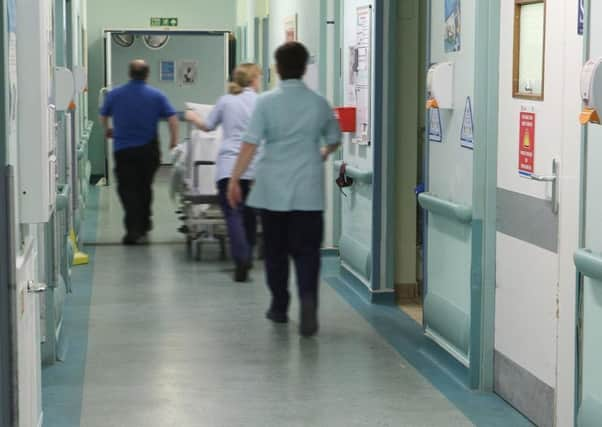Bill Carmichael: NHS at 70 far from being '˜envy of the world'


The idea was simple – universal health care, provided free at the point of need and regardless of the ability to pay, all funded by the taxpayer.
But it was also hugely ambitious, especially for a war-ravaged country whose economy had been shot to pieces in a desperate fight to defeat the Nazis, which had ended in victory just over three years earlier.
Advertisement
Hide AdAdvertisement
Hide AdAt the time, in 1948, Bevan’s proud boast that the NHS would become “the envy of the world” had much substance, as few countries had any kind of functioning health service at all, still less universal, free care.
That phrase – “envy of the world” – has echoed across the intervening decades and we will certainly be hearing a lot more of it in the next few days as a significant NHS anniversary approaches.
But, 70 years later, is it still true? Is the NHS really the “envy of the world”? No, I am afraid not. Those words have ossified into a comforting but hugely self-deluding myth.
For one thing, if the NHS really were the envy of the world, you would expect that the model would have been replicated across the globe, but this has not happened. Not a single country has copied the UK and built its own NHS.
Advertisement
Hide AdAdvertisement
Hide AdWhy? Well, quite simply in terms of health outcomes the NHS performs poorly. Numerous international comparisons place the UK in the bottom third of the league tables when it comes treating common killer diseases and keeping people alive.
The statistics show clearly that our health service is more on a par with poverty-stricken countries in Eastern Europe, and is streets behind the sort of care that people routinely expect in richer countries such as Switzerland, Germany and the Netherlands.
Only this week yet another study comparing health systems across countries found that the NHS lags badly behind the best performers in terms of health outcomes.
The analysis, carried out by the King’s Fund, the Nuffield Trust, the Health Foundation and the Institute of Fiscal Studies to mark the 70th anniversary, found the NHS was a below average performer in terms of preventing deaths from heart attacks, strokes, lung disease and breast, colorectal, lung and pancreatic cancers.
Advertisement
Hide AdAdvertisement
Hide AdThe NHS also had consistently higher rates of death for babies during birth or in the first month of life.
Even an often-cited 2014 study by the Commonwealth Fund, which ranked the NHS very highly in many areas, found that it rated badly in terms of patient outcomes.
In terms of deaths among infants and patients who would have survived had they received timely and effective health care, the UK came 10th out of 11 countries surveyed.
The Guardian newspaper commented: “The only serious black mark against the NHS was its poor record on keeping people alive.”
Advertisement
Hide AdAdvertisement
Hide AdCall me old fashioned, but isn’t that the entire point of a health care system?
But despite this huge weight of evidence indicating our health care system is far from the best, criticism of the NHS is muted.
The NHS is treated as a secular religion in modern Britain, immune from scrutiny and resistant to fundamental reform.
Politicians on both left and right are so terrified of offending the NHS god that the only policies they come up with are the same tired solutions – let’s throw yet more cash at the thing in the hope of making it better.
Advertisement
Hide AdAdvertisement
Hide AdSo Theresa May announces £20bn a year extra for the NHS, partly funded by the Brexit dividend and partly – yes, you guessed it – from higher taxes. Politicians think the solution to every problem is higher taxes, when more often than not the reverse is the truth.
But are yet higher taxes the only answer? A few miles away in Germany, the Netherlands and Switzerland, universal health care is provided at a far better standard than in the UK using a social health insurance model.
Founding the NHS was a tremendous achievement by a country exhausted by war, but today 70 years later, are we really so arrogant to believe we can’t learn from our neighbours who achieve far superior health care results?